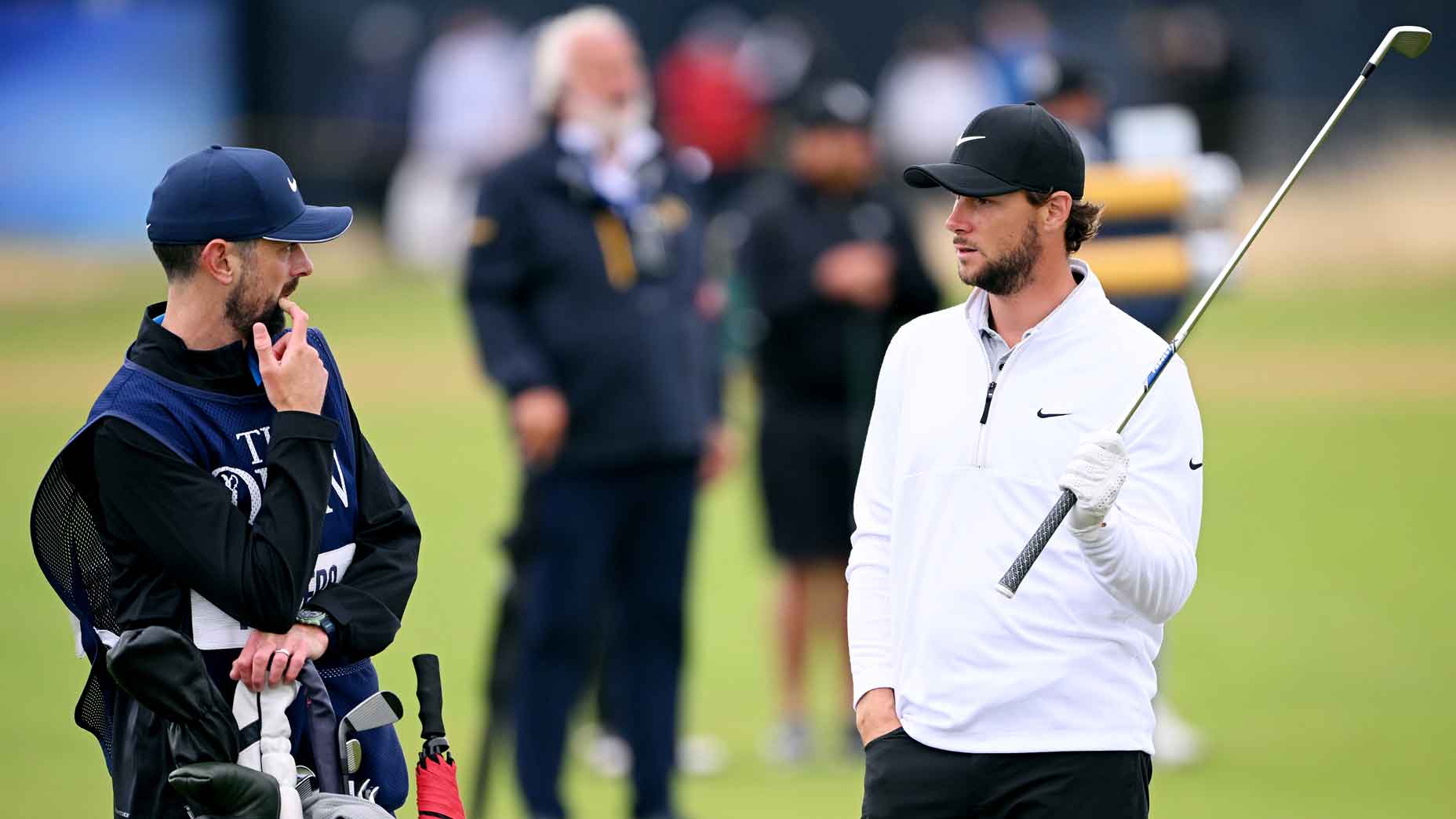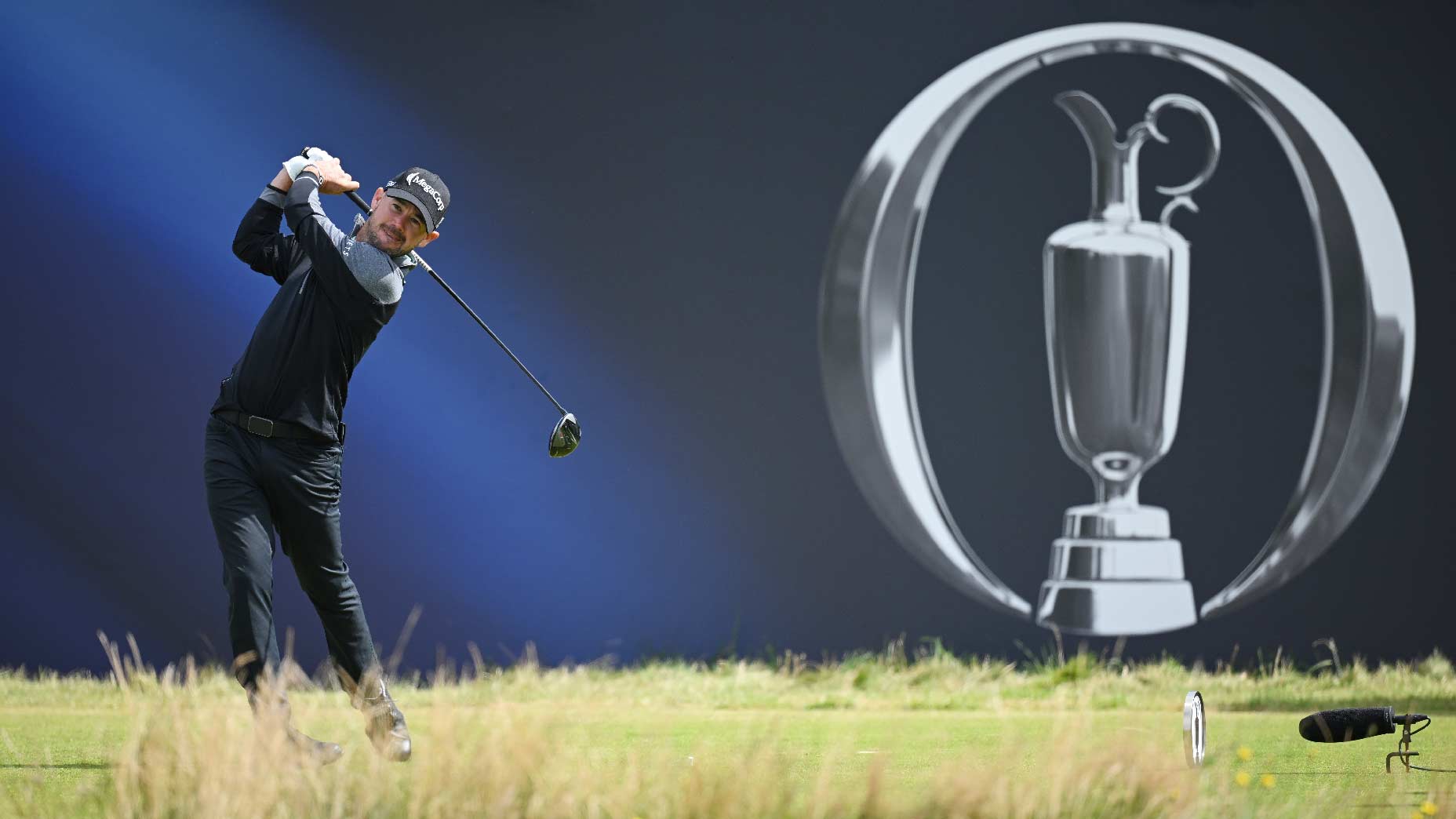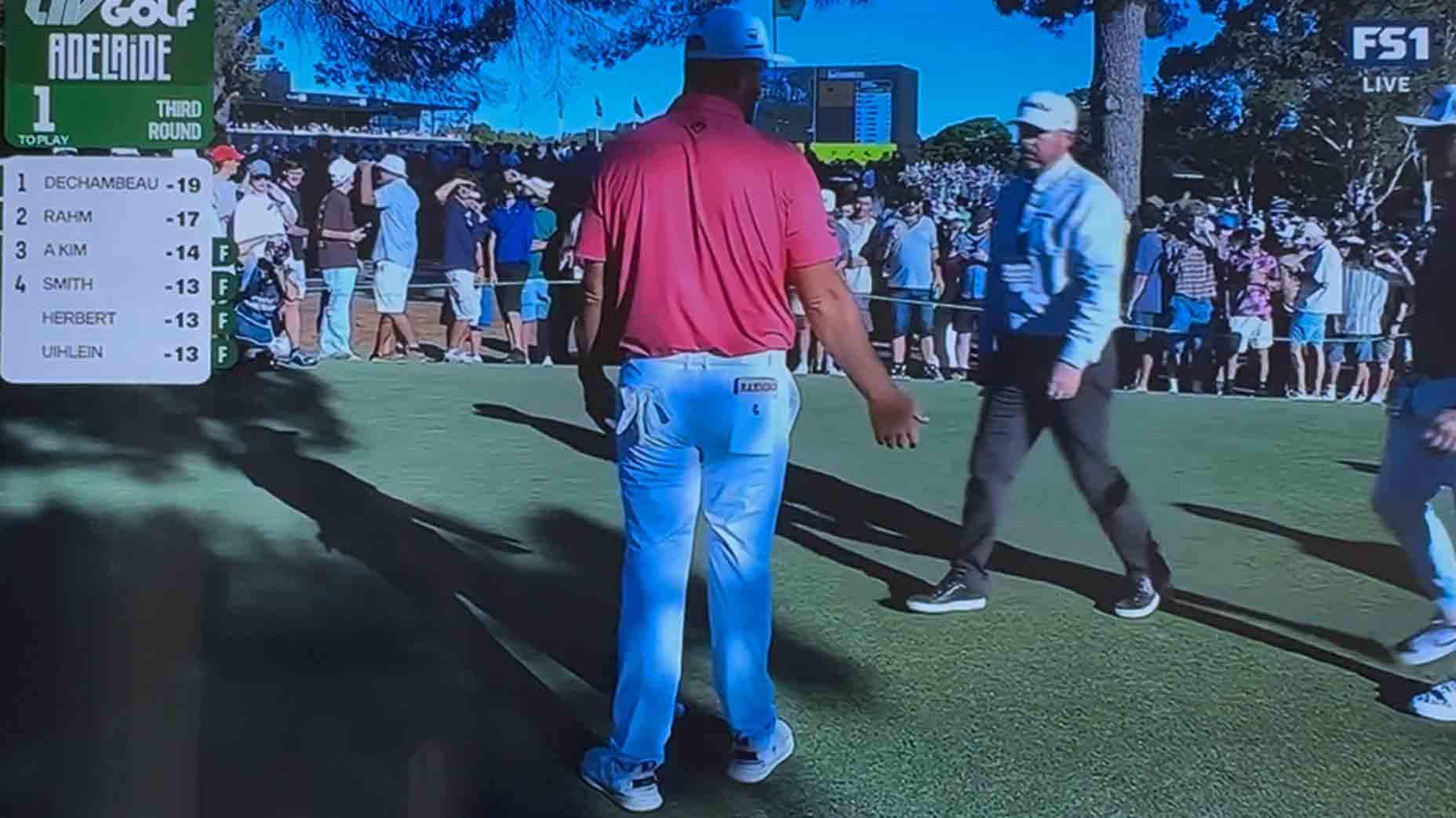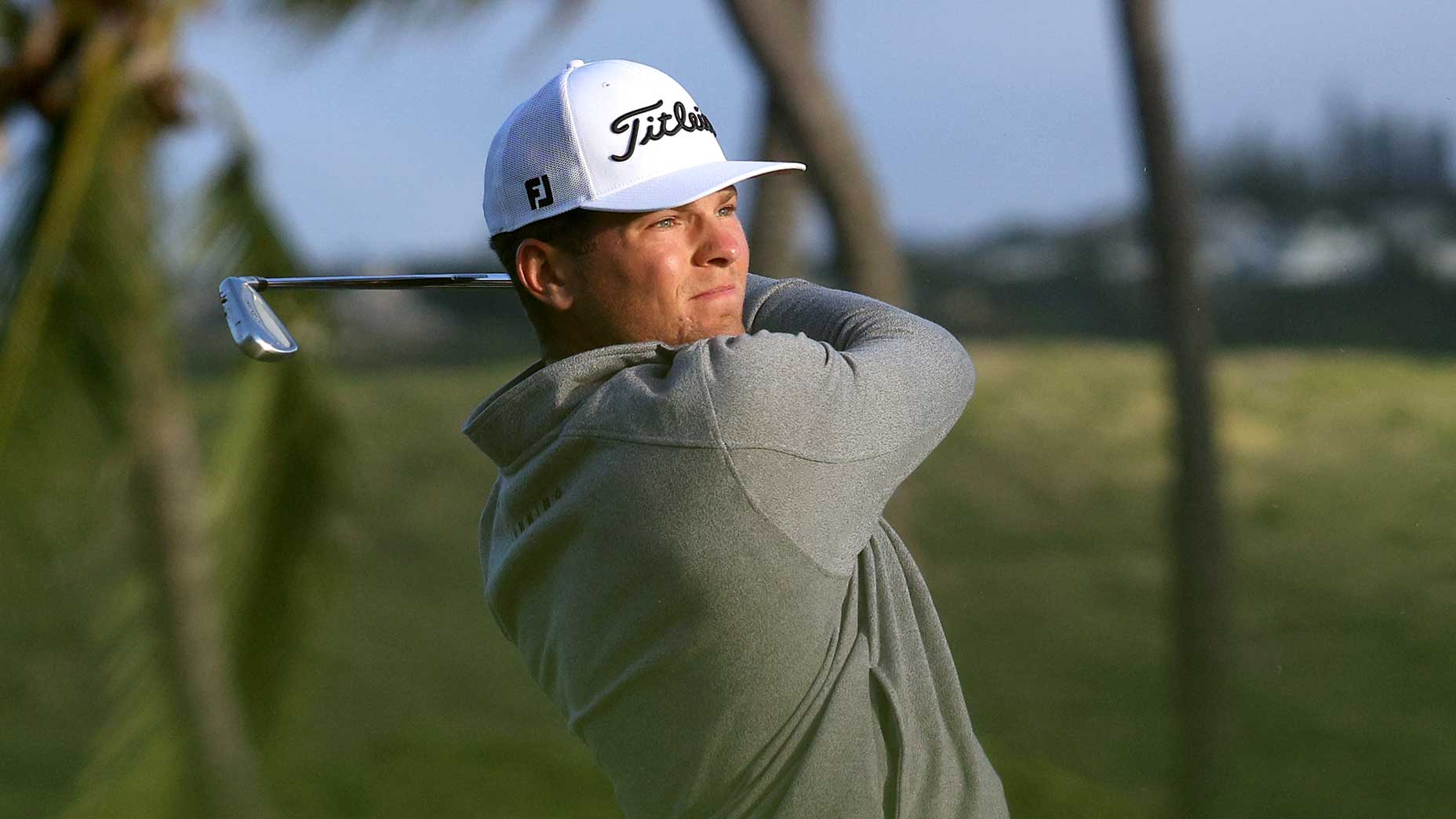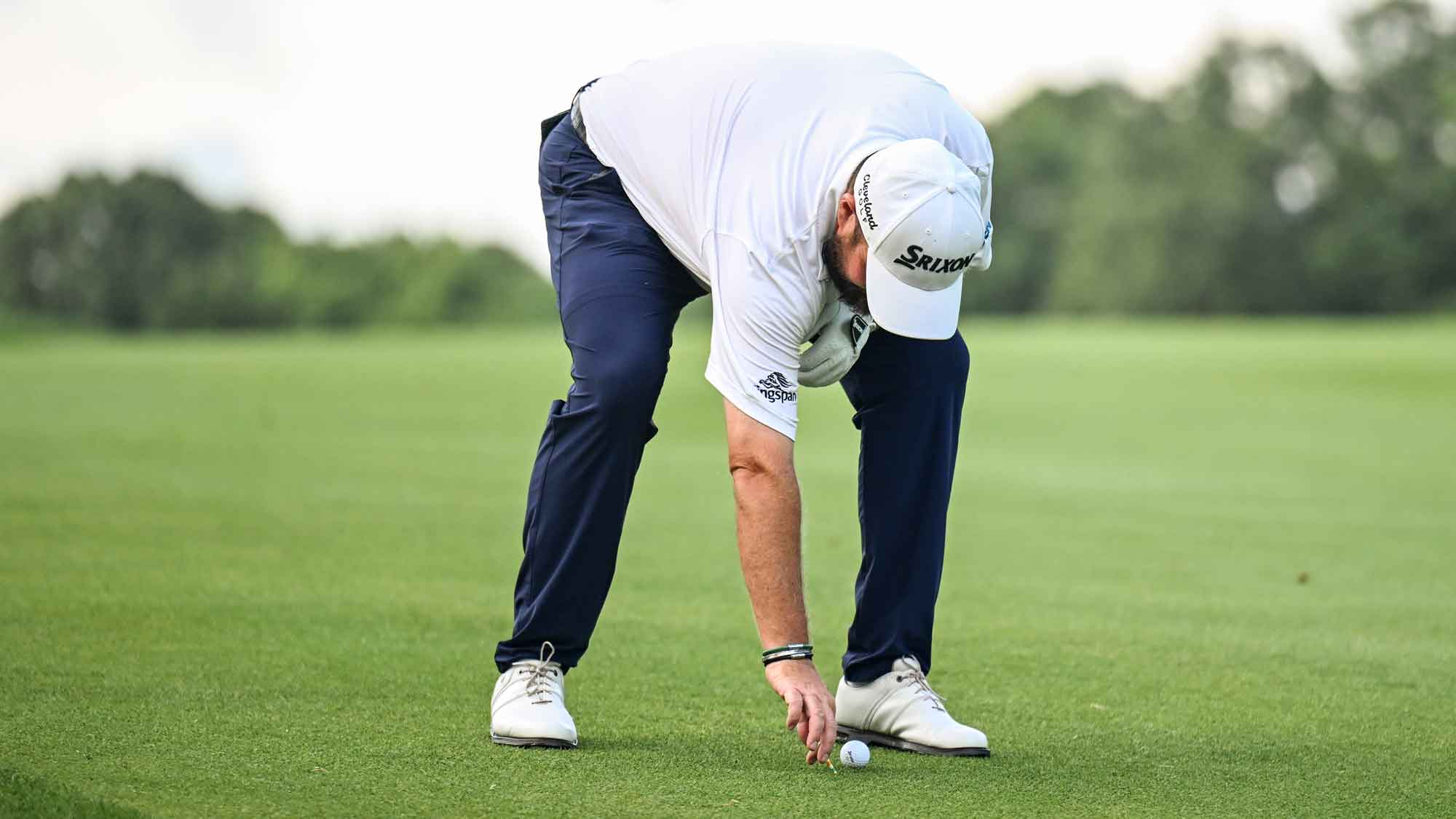Twice, Thomas Pieters thought his ball was out of bounds. Twice, it wasn’t.
Twice, he was burned.
In a pair of bizarre sequences on Sunday during the Open Championship final round, and as first reported by National Club Golfer, Pieters lost strokes at Royal Liverpool due to penalties — but each could have been potentially avoided. In the end, Pieters shot a nine-over 80, after starting the day at one-over through 54 holes.
His first encounter with O.B. came on the 430-yard, par-4 8th, where Pieters hit his tee shot left. He walked to it, but eventually walked back. Officials told him they thought his ball was out of bounds. He hit again — only for his original to be found “way up there.”
But Pieters had to play the second ball — and take the penalty stroke — as part of Rule 6.3b. That rule reads as follows: “If the player’s original ball has not been found and the player put another ball in play to take stroke-and-distance relief (see Rules 17.1d, 18.1, 18.2b and 19.2a) or as allowed under a Rule that applies when it is known or virtually certain what happened to the ball (see Rules 6.3c, 9.6, 11.2c, 15.2b, 16.1e and 17.1c): The player must continue playing with the substituted ball, and the player must not play the original ball even if it is found on the course before the end of the three-minute search time (see Rule 18.2a(1)).”
From there on 8, Pieters double-bogeyed. But 10 holes later, he again fought with out of bounds.
On the 609-yard, par-5 18th, Pieters was in play on his tee shot, but his second stroke went right, toward the internal out of bounds. He hit again. He found the original. But Pieters hadn’t declared he was playing a provisional, and he had to play the second ball — and take the penalty stroke.
Winner’s bag: Brian Harman’s equipment at the 2023 British OpenBy: Ryan Barath
Rule 18.3b covers this. It says: “Before the stroke is made, the player must announce to someone that they are going to play a provisional ball: It is not enough for the player only to say that they are playing another ball or is playing again. The player must use the word “provisional” or otherwise clearly indicate that they are playing the ball provisionally under Rule 18.3. If the player does not announce this (even if they intended to play a provisional ball) and plays a ball from where the previous stroke was made, that ball is the player’s ball in play under penalty of stroke and distance (see Rule 18.1).”
From there on 18, Pieters double-bogeyed again. And afterward, he was briefly asked what had happened.
“Can you talk about what happened on 18?” a reporter said. “Looked like you thought the first had gone out, but it hadn’t.”
“Yeah, just didn’t take provisional,” Pieters said. “It’s pretty stupid just from my part. Same thing on 7. [8] I hit one left and officials thought it was out of bounds, but actually it was way up there and I had to go back to the tee, so two balls that were inbounds and I had to re-tee it.
“It is what it is.”
